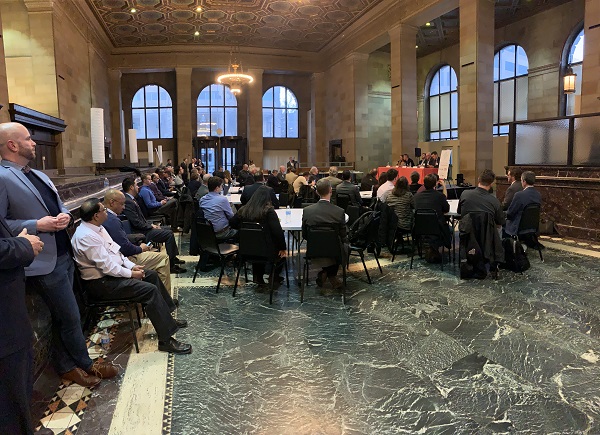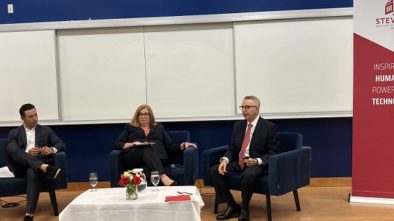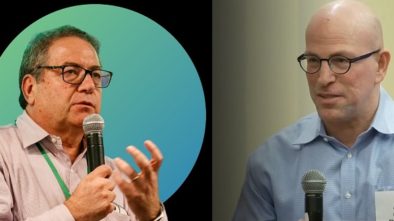Education, Government and Industry Leaders Discuss Tech Trends in Trenton
On February 21, more than 50 people attended an Emerging Tech Trends event hosted by the New Jersey Tech Council (NJTC).
The meeting was sponsored by Google, ORS Partners (Audubon, Pa.) and Maestro Technologies (Trenton), and took place at Maestro headquarters.
During the welcome remarks, delivered by Kamal Bathla, managing director of Maestro, and James Barrood, president and CEO of the NJTC, the participants learned that Trenton had been designated as number 18 among America’s top 20 tech towns in CompTIA’s 2018 Tech Town Index.
The event included a panel discussion moderated by Michael Waas, global vice president of brand partnerships at TerraCycle (Trenton). The discussion focused on the role of emerging technologies in smart cities like Trenton that use electronic data-collection sensors to manage resources more efficiently.
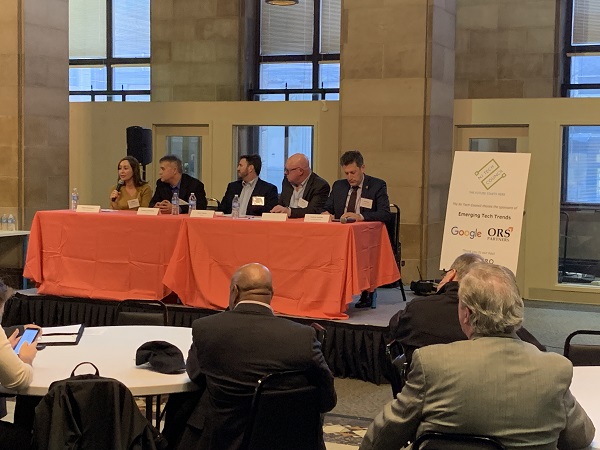
The panelists were Sean Wohltman, customer engineer at Google; Chris Sullens, CEO of CentralReach (Holmdel); Walter Willinger, chief scientist at NIKSUN (Princeton); and Stephen Brittin, SVP and founding member at ORS Partners.
Wohltman discussed the use of low-energy Bluetooth monitors by the navigation app Waze to prevent drivers from losing their signals when they’re in tunnels. And he noted that the Brooklyn-based tech company goTenna offers MESH, which connects devices to a programmable network when cell towers are down, a major help for local first responders.
The panel also addressed questions from the audience about how well colleges are preparing graduates for tech careers. Brittin made the important distinction between technical skills and the softer skills needed for success in the workplace. He said that employers should recalibrate job descriptions to include the wide variety of skills needed, and noted that there is great benefit to having diverse talent.
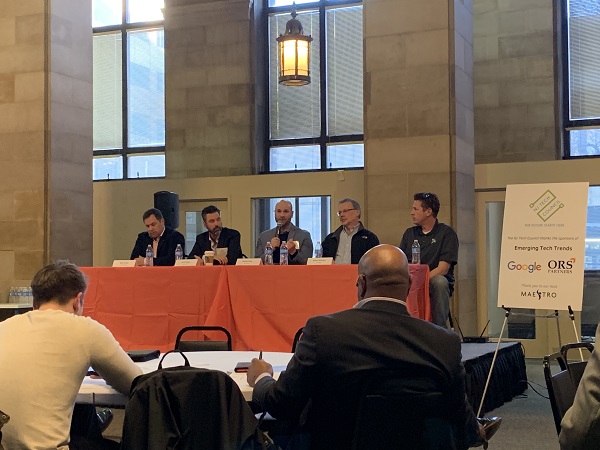
After a quick break, Eamon J. Wall, partner at Meagher Emanuel Laks Goldberg & Liao (Princeton), moderated a panel discussion on education and government. The panelists included: Orlando Hernandez, associate professor, Department of Electrical and Computer Engineering at The College of New Jersey (Ewing Township); Nidhal Bouaynaya, associate dean for research and graduate studies at Rowan University (Glassboro); Brian Sabina, senior vice president of economic transformation at the New Jersey Economic Development Authority; and Assemblyman Andrew Zwicker, member of the New Jersey State Assembly, where he chairs the Science, Innovation and Technology Committee.
Sabina asked for a show of hands to see how many audience members thought the state was doing a good job at matching talent to tech positions. Based on the number of hands raised, the consensus in the room was that the state had a long way to go.
Hernandez said that the education system needs to reach students where they are culturally, and he advocated for the fusing of entertainment and learning to make lessons more accessible. Bouaynaya commented that current core curriculum standards don’t keep up with emerging-tech challenges, and thus may be leaving students unprepared.
People capable of learning are in high demand, said Wall. “That trait is more valuable than any technical skill. People have many different skills, and it’s essential for a job to match the right person to the right job. Not everyone has to be good at everything.”
Zwicker talked about a new state initiative, aimed at “the entire educational ladder,” that would seek to make all students more competitive in the emerging-tech job market. He also described possible high-tech apprenticeships at community colleges and vocational/technical schools. Wall and Sabina liked the idea, and mentioned various initiatives that support such programs. In a similar vein, Bouaynaya spoke about a new nine-month co-op program at Rowan University.
According to Hernandez, schools want to become feeders of talent into industry, but they need more feedback, as well as more opportunities for creative risk-taking by students. There should be a more symbiotic relationship between the education and government sectors, he said. Wall agreed, adding that “there are plenty of resources available to manage the workforce flow [between schools and workplaces]. The gaps that exist are a failure of communication, not a failure of existence.”
Next came the question-and-answer session, which covered a variety of points. Audience members frequently expressed the view that adaptable people are needed to meet the demands of emerging technologies. Because technologies change so fast, people who want to succeed in the industry will have to possess the ability to learn and change rapidly.
Sabina described the New Jersey STEM Loan Redemption Program, which rewards students for finding jobs within New Jersey, and the Innovation Evergreen Fund, a $500 million plan to increase venture capital investment in the state.
The panelists agreed that there was a need for more diversity in tech. To that end, greater emphasis should be placed on attracting girls into STEM programs before the fifth grade, to strengthen their interest, and on attracting women into IT careers.
After the second panel discussion, the participants networked over food and drinks provided by the event hosts. John Lavery, senior vice president at HSBC Commercial Banking (New York), said, “I got what I came for tonight. It was a well-attended and informative event.”

